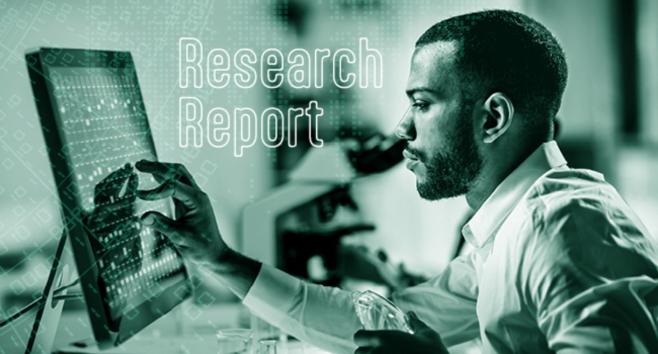You are here
HEE supports study into impact of emerging technology on the information profession
20 May 2021

Health Education England, the strategic lead for NHS Knowledge and Library Services in England, has welcomed publication of an independent report outlining ‘The impact of AI, machine learning, automation and robotics on the information professions.’
The independent research study was published this week and was undertaken by Dr. Andrew Cox from Sheffield University to understand how AI, machine learning, process automation and robotics impact on the work of information professionals. The full research report is published by CILIP, the library and information association with the support of Health Education England. It sets out a detailed and methodical analysis of the challenges and opportunities presented by this new generation of technologies.
Patrick Mitchell, Director of Innovation, Digital and Transformation, said: “Healthcare is a knowledge industry and the NHS is hungry for solutions that bring together evidence such as research, data and information from a myriad of sources, as actionable intelligence.”
HEE is already adopting new technologies for knowledge and information as set out in the Knowledge for Healthcare strategy which was published in January 2021. Recent education and training initiatives designed to support knowledge specialists to seize the opportunities of the digital era include:
1. Library Carpentry: Launching in May 2021, HEE has joined Library Carpentry to equip 60 NHS knowledge specialists to apply concepts from software development and data science. The focus is on automating repetitive library functions, enhancing evidence by adding another angle of analysis and better understanding the use of software in research. We will later train six participants to deliver the course.
2. Learning Academy: Founding a new specialist Learning Academy for NHS knowledge and library services staff in England, we will offer a range of short courses accredited by CILIP, providing opportunities to learn about technologies and gain the confidence to meet the evolving knowledge needs of the healthcare system.
3. Digital Healthcare and Data Science qualification: Partnering with HEE’s National School of Healthcare Science and the development team in the Division of Informatics, Imaging and Data Science at the University of Manchester to offer some bespoke content for Knowledge Specialists as part of a broader digital and data science offering for all healthcare professionals.
Sue Lacey Bryant, national lead for NHS Knowledge and Library services, said: “Artificial Intelligence, Machine learning and robotics are already reshaping the ways that teams create, discover, use and share information. This research is both timely and time critical. The findings will inform our planning and enable us to accelerate initiatives to enable the NHS knowledge services workforce of today and tomorrow to thrive in the digital era.”